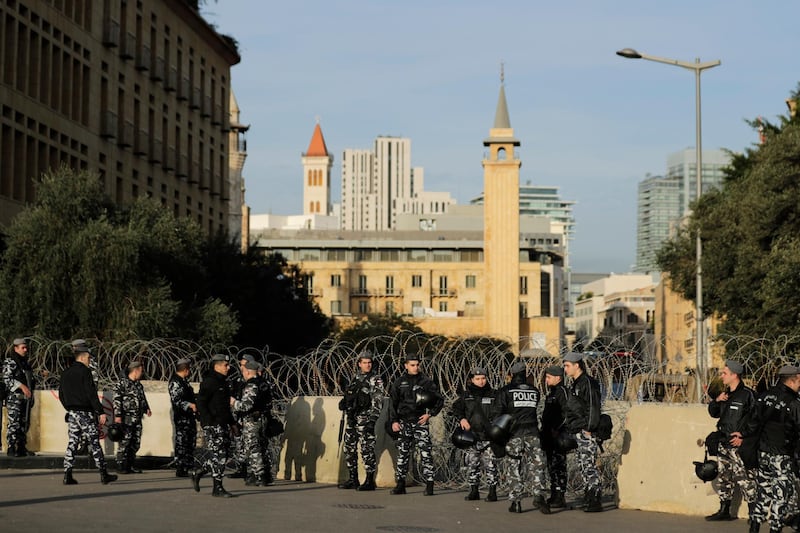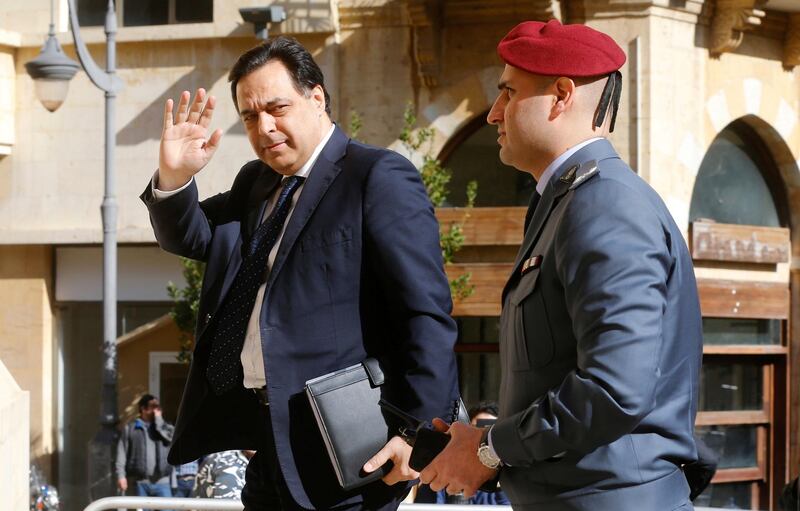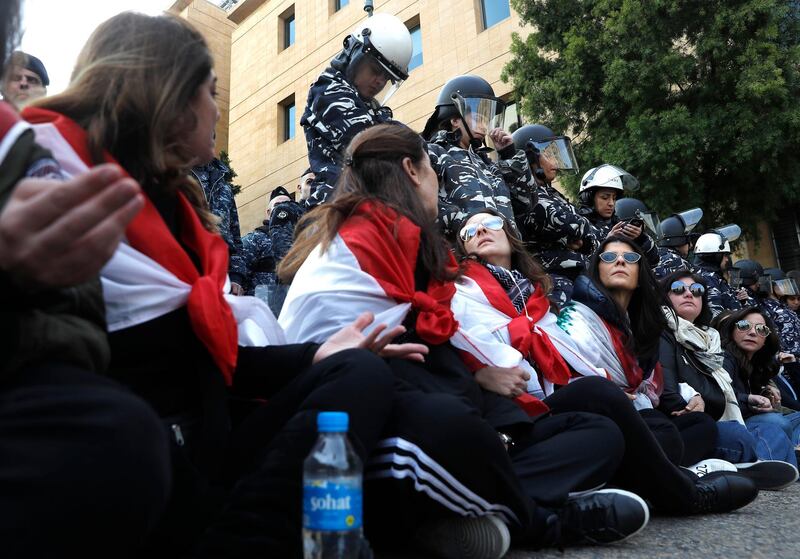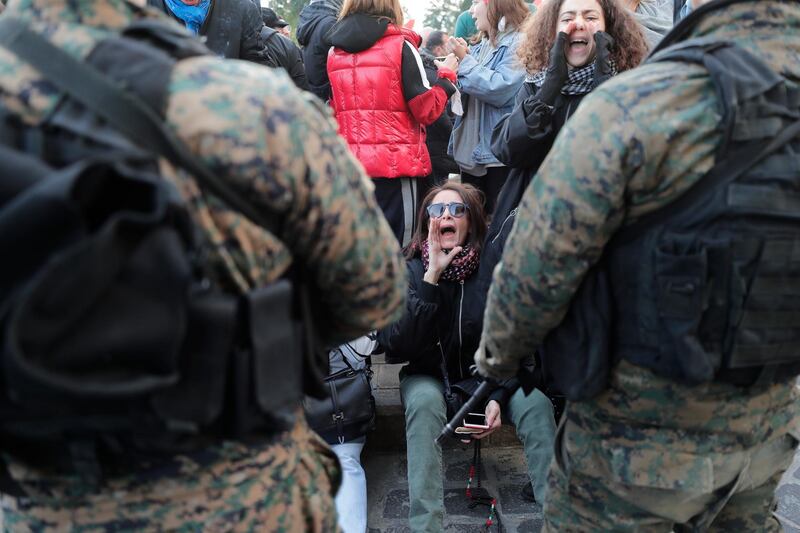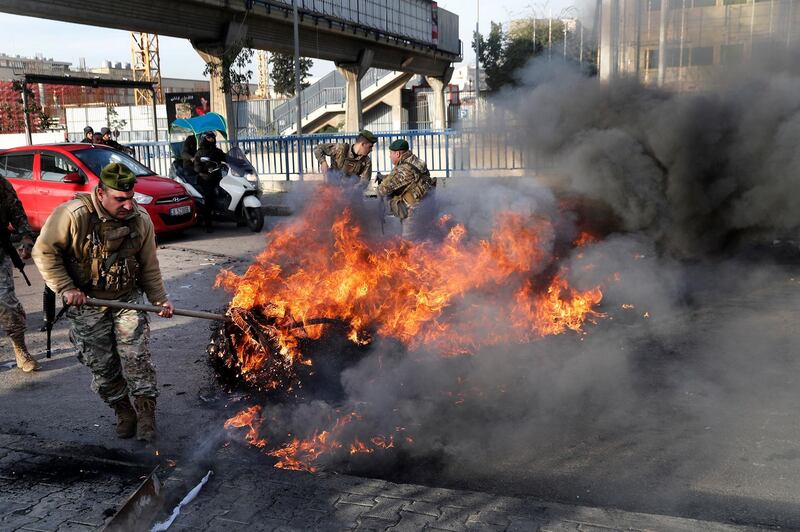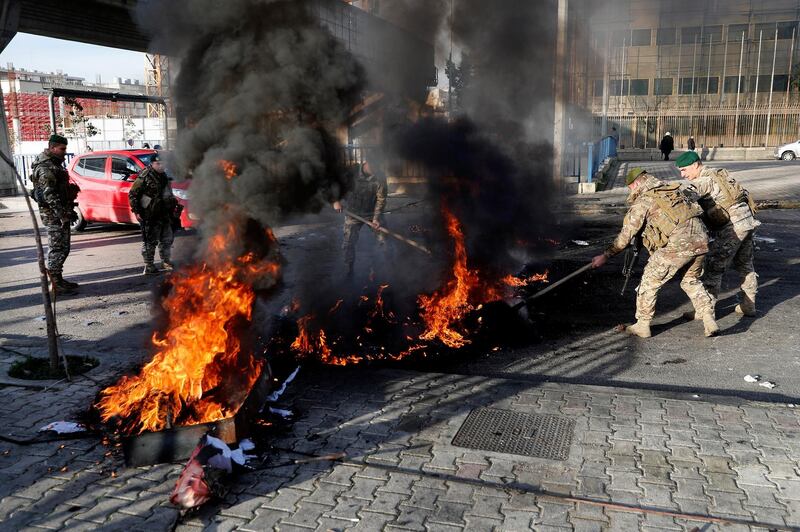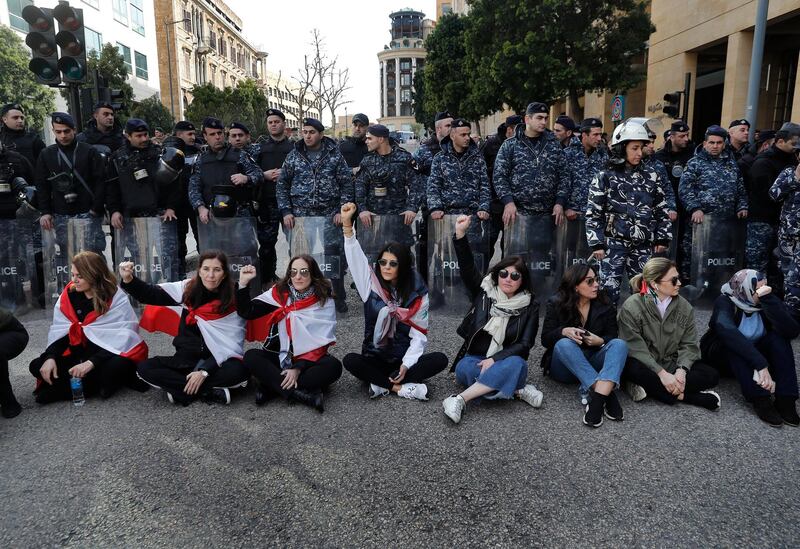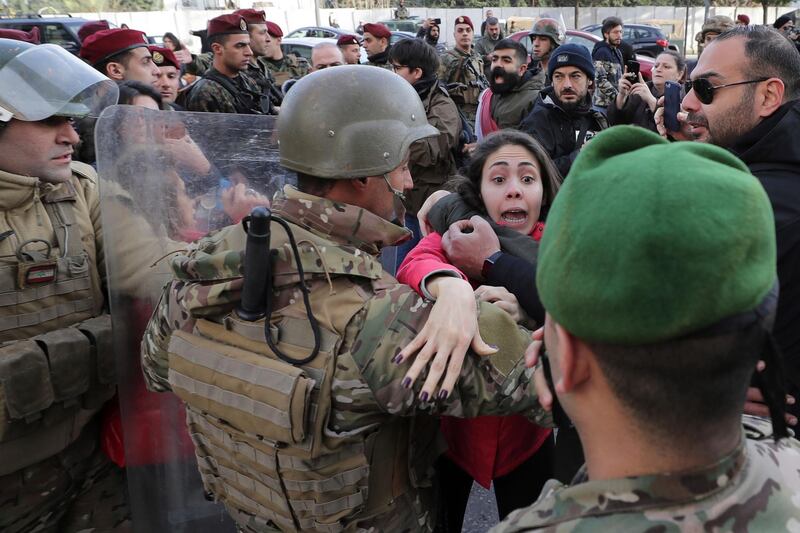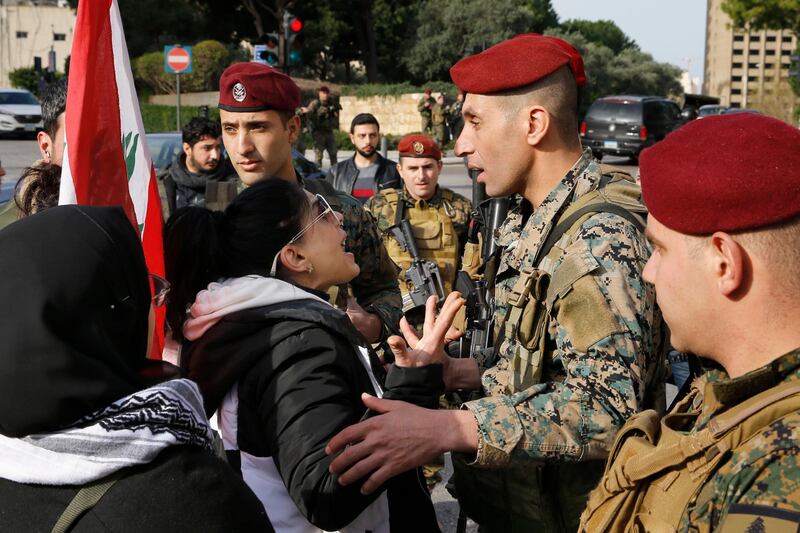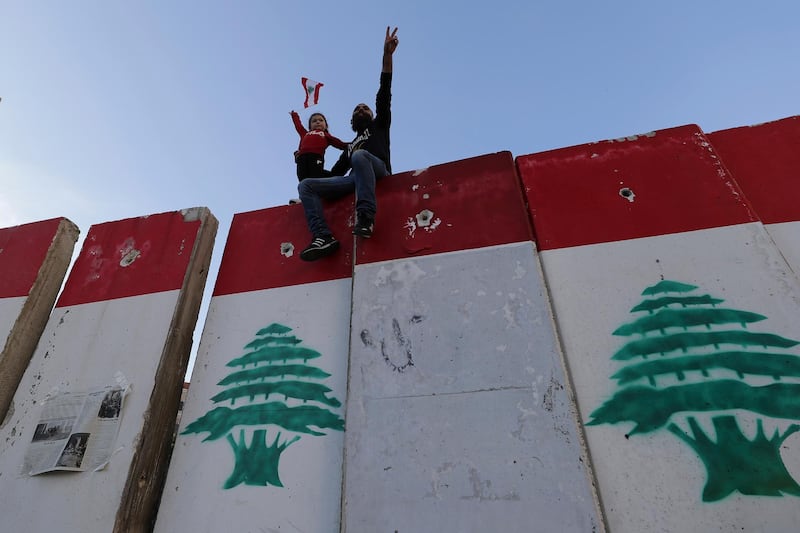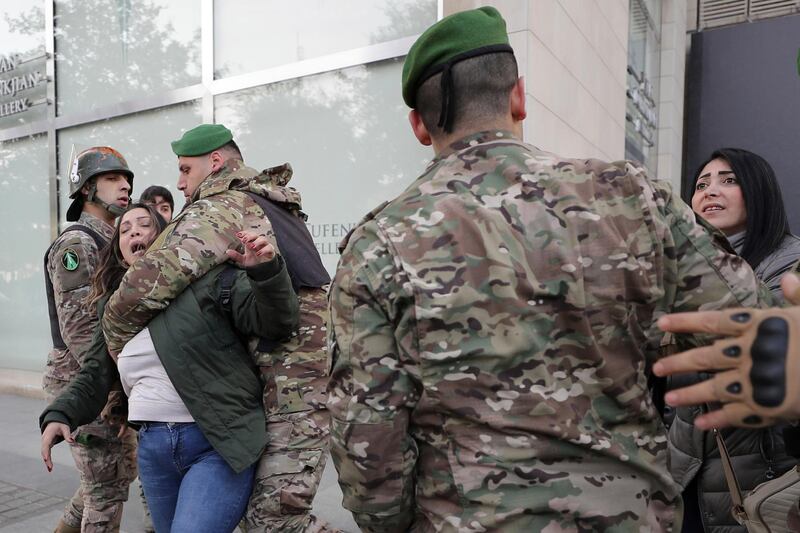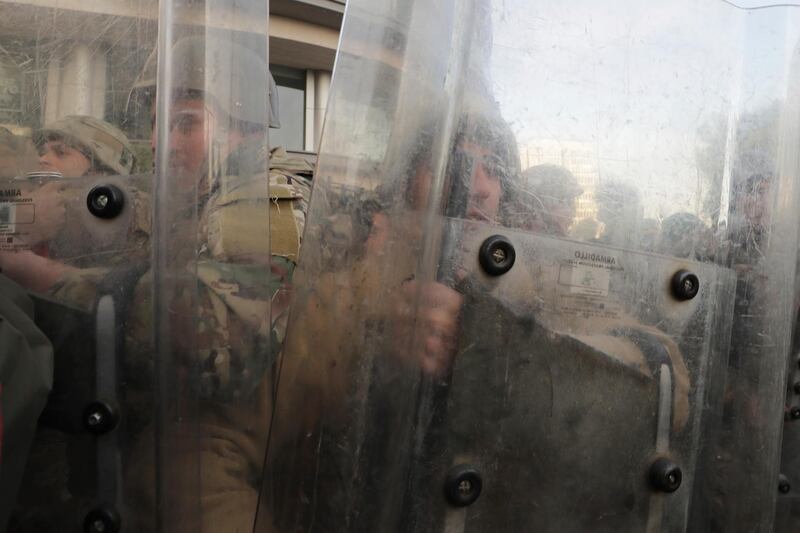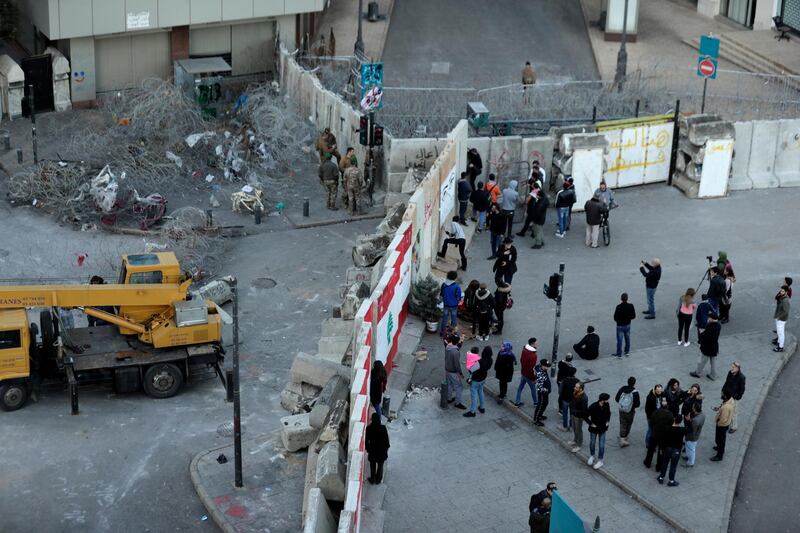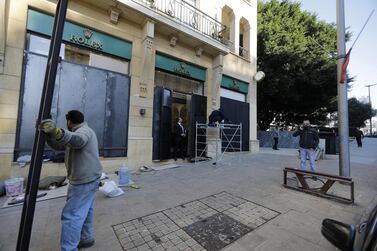The Lebanese Parliament passed the crisis-hit country's 2020 budget on Monday, as security troops used rubber bullets and tear gas to keep away protesters.
The violence escalated mid-morning as protesters threw rocks at riot police, who were posted in force on roads leading to the Parliament in downtown Beirut.
Thousands of soldiers, including special forces, sealed off the area around Parliament early in the day to stop protesters blocking the MPs’ path.
By midday eight injured protesters had been taken to hospital and 19 people were treated at the scene, the Lebanese Red Cross said.
Men throwing rocks at riot police in Beirut's Martyrs' Square told The National that they came from the northern city of Tripoli. But not all protesters were involved in the attack.
A few metres away, some stood chanting songs or waving the Lebanese flag. They were surrounded by riot police and soldiers who stopped them blocking the road.
Two black SUVs with tinted windows drove past quickly as protesters screamed “thieves” at them.
Hayat Nazer, an artist and protester, said their numbers were not big enough to block entrances to Parliament.
Last November, Parliamentary Speaker Nabih Berri was forced to postpone sessions several times because of demonstrations.
“We used to be larger numbers but people are scared now," Ms Nazer said. "They lost their eyes and fingers from the [rubber bullets]."
Wounded but determined: Lebanon's protesters fight on
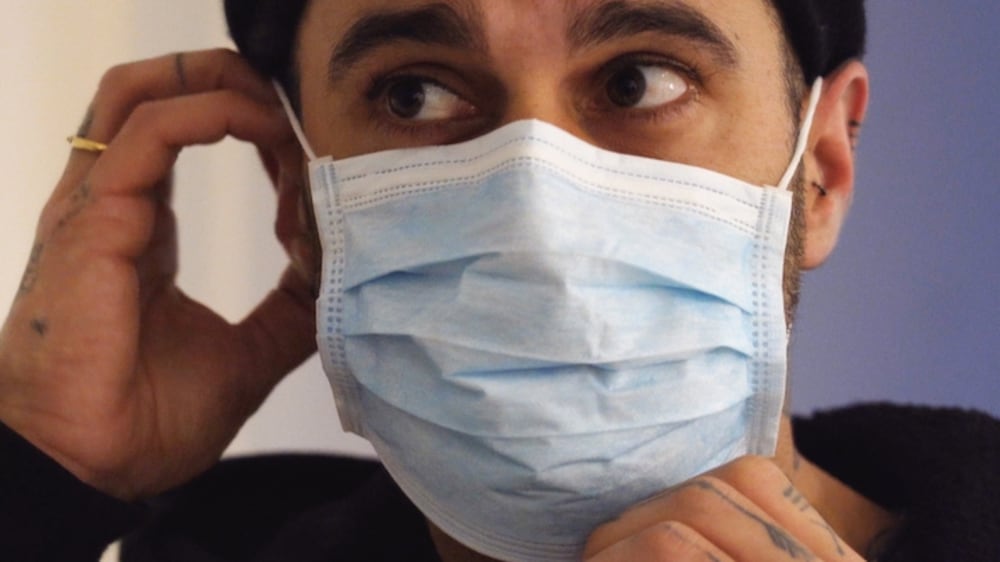
Hundreds of protesters were injured on the night of January 18, when riot police used rubber bullets for the first time since the anti-government uprising began on October 17.
Human Rights Watch said that at least two people lost their eyesight. This caused an outcry in Lebanon and security troops stopped using rubber bullets, until Monday.
Protesters reject the country’s new Cabinet, formed last week after 39 days of talks political wrangling.
They consider it to be a product of the sectarian power-sharing system that they are seeking to do away with, and which has ruled Lebanon since the end of the civil war in 1990.
The budget passed on Monday was drafted by the previous government of Saad Hariri, who resigned as prime minister on October 29.
Parliament's finance and budget committee has since introduced changes. Its chairman, Ibrahim Kanaan, said on Friday the latest projection was for a budget with a deficit of 7 per cent, not the 0.6 per cent originally hoped for.
Sami Nader, director of the Levant Institute for Strategic Affairs, said that the budget adopted by the Hariri government was no longer valid.
“This budget should have disappeared with his resignation," he said, criticising the methods used by the previous government to reduce the deficit.
"They will cancel the servicing of the debt owed to the central bank. That means you take the losses from the state's account and put it on the central bank's account.
"This is a trick that will have damaging impact on the central bank's balance sheet, the banking sector and the Lebanese people’s deposits."
The parliamentary session was scheduled for two days.
In recent days, security forces set up concrete blast walls around Parliament and the nearby government headquarters, known as the Grand Serail, to keep protesters away.
Over the past two weeks, central Beirut experienced riots that injured more than 500 civilians and policemen.
Political analyst Imad Salamey said the shutdown of Beirut's city centre for the parliamentary session was an “unprecedented show of force”.
"This is a sign that the new government appears to want to force itself rather than seek the approval of the population," Mr Salamey told The National.
Local media reported that several political parties boycotted the session, including the Lebanese Forces, which has been openly supportive of protesters' demands.
Since the start of the protests, the value of the Lebanon's currency has dropped nearly 40 per cent in unofficial trade despite being pegged to the US dollar at the rate 1,507 pounds.
Banks have implemented tight capital controls, with some allowing withdrawals of only $200 (Dh734) a week, and unemployment has sharply risen as the protests brought the country to a halt.
Lebanon has one of the highest levels of public debt in the world, at more than 150 per cent of GDP.
Growth has plummeted and the budget deficit reached 11 per cent of GDP in 2018, as economic activity slowed and remittances from Lebanese living abroad shrank.
